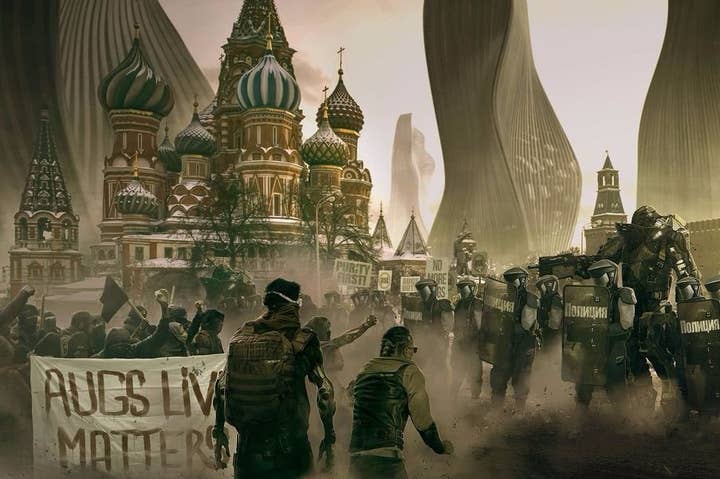Deus Ex, Salt and Sanctuary, Pokemon Go - different shades of outrage
Weekly Roundup: Gamers and developers both air their grievances, and politicians see Pokemon Go is a tool for predators
If the medium is the message, we must consider whether the message of social media is wounded indignation and moral outrage. This week brought two more examples to support that idea, each distinct from the other, but nevertheless united by a common quickness; the speed with which the true weight of an issue can become distorted, when an opinion can be expressed - and mass support for that opinion rallied - in the time it takes to assemble 140 pointed characters.
"Not all feedback is valuable. In the age of outrage, the customer is definitely not always right"
Few in the industry would stand against Ska Studios' James Silva, who found both his company and its partner, Sickhead Games, the target of strident abuse for an apparently unforeseeable delay to the Vita port of the excellent Salt and Sanctuary. Silva's impression that, over the last decade, the tone of feedback from players to developers has gone "from 95% supportive, 5% meh to 50% supportive, 50% angry, impatient, and downright hurtful" carries the bitter ring of truth. Hopefully, many will choose to emulate a "sanity policy" by which feedback deemed excessively harsh is deleted without the need for protracted debate. Not all feedback is valuable. In the age of outrage, the customer is definitely not always right.
The other instance is more ambiguous. Manveer Heir, a game designer I have admired for many years, directed his own strident criticisms at a trailer for Deus Ex: Mankind Divided for the use of the phrase "Augs Lives Matter" in a political demonstration taking place in the game's diegetic world. "I think Eidos Montreal should be ashamed of themselves for appropriating a real black struggle and movement for financial gain," Heir said, drawing a somewhat indistinct line between where the legitimate artistic intent of the game's creators ends and the supposedly venal machinations of its marketing team begin. There can be no final word in a debate like this, but it's important to remember that not everyone who opposes Heir's position is ipso-facto a supporter of the kind of injustice he observes in those images. Nuance is all too often the first casualty in this distinctly modern kind of battle.
"Pokemon Go might prove to be so popular it will directly contribute to new laws being introduced in the United States"
From moral outrage to moral panic, as augmented reality technology in general - and Pokemon Go in particular - became the focus of concerns that sex offenders are using AR games to locate and lure potential victims. This is hardly the first time that a popular video game has been portrayed as a threat to the safety of the young and the vulnerable, and it can be difficult to ascertain whether fear or fact has the controlling influence. Whatever the case, though, Pokemon Go might prove to be so popular it will directly contribute to new laws being introduced in the United States.
The question of just how long Pokemon Go will be popular was raised by Rob Fahey in his column this week, along with the suggestion that a great many bad investments will be made in AR following its early (and unsustainable) success. "If Pokemon Go turns out to be sustainable, then there's potential for other companies to start thinking about what to do with this new audience of people who have fallen for mobile AR experiences," Fahey wrote. "But until that happens, every VC dollar or man-hour of design time spent on a 'Pokemon Go killer' is most likely being wasted entirely."
Elsewhere on GamesIndustry.biz this week:
Activision Blizzard posted record Q2 revenues as Overwatch's lifetime sales top $500 million.
Starbreeze veterans will bring AAA production values to VR with First Contact Entertainment.
Ghostbusters developer Fireforge has filed for bankruptcy with debts of $12 million.
Former EA exec Richard Hilleman is now working at Amazon Game Studios.
In other news:
Samsung's GearVR headset is getting an upgrade.
Flaregames acquires Nonstop Knight developer Kopla Games.
Glu Mobile's losses widened to $17.9 million in the second quarter.
Total War: Warhammer helped Sega turn a narrow loss into a narrow profit in Q2.

